每日观察:关注Gamevil游戏称雄韩国App Store榜单(11.8)
1)据pocketgamer报道,在韩国政府对苹果App Store游戏产品解禁之后,韩国发行商Gamevil旗下体育模拟游戏《Baseball Superstars II》于近日占据App Store营收榜单之首,同时成为付费榜单冠军及免费榜单季军。在该国App Store榜单排名第四的是《无尽之剑》,第5名则是《FIFA 12 》。
2)comScore九月份的MobiLens调查报告显示,Android智能手机使用率在美国移动市场最为领先。在3万多名受访者中,Android用户比例接近45%,而6月份的这一比例为40.2%。
而RIM黑莓操作系统同一时期的比例则从23.5%下降至18.9%,苹果iOS从原来的26.6%上升至27.4%,微软Windows Phone是5.6%。
尽管Android仍是智能手机市场冠军,但投入使用的智能手机在整个美国移动市场中的比例仍仅占37%(投入使用的美国手机共2.34亿部)。
comScore调查还发现,9月份有28.8%的美国移动用户在玩手机游戏,而6月份的这一比例则是26.9%,8月份是28.5%。美国手机游戏用户比例与移动社交网络用户比例相当,但两者均低于占比71.1%的短信用户。
3)运营商客服技术支持公司WDS针对过去12个月的60万个客服电话的调查发现,用户针对Android移动设备的客服电话几乎是iOS的两倍。
调查显示Android移动设备分裂性所引起的技术问题远甚于其他平台,14%的客服电话与Android硬件有关,Windows Phone客服电话占11%,iOS占比7%,黑莓仅占6%。
WDS营销副总裁Tim Deluca-Smith表示,这个问题与Android平台本身无关,其原因在于不同硬件设备之间的分裂性。不同Android移动设备之间的用户体验存在差别,用户在购买Android设备时需考虑不同硬件设备的规格和组件质量等因素。
4)THQ公司最近公布的2012第二财季(截止9月30日)报告显示,由于iOS游戏销量不济,公司在这一时期的移动业务营收为73万美元,同比去年的150万美元下滑51%。
其移动业务在前两个季度的总销售额为147万美元,也比去年同期的301万美元下降51%左右。
但THQ仍在与美泰公司合作,在11月份向iOS、Android、Facebook、XBLA和PlayStation平台推出《Apples to Apples》,并在第三季度向iPad及Facebook发布社交生活游戏《Margaritaville Online》。
该公司DS游戏销售额第二季度达1770万美元,增幅为2.5%,但PSP游戏销售额暴跌71%,仅创收200万美元。移动及掌机游戏业务占总销售额的17%,该公司这一时期总销售额为1.46亿美元,同比去年增长89%,但净亏损也达到9200万美元。
5)据pocketgamer报道,TwitchGames工作室(代表作包括iOS游戏《Slice HD》)与开发商Radical Entertainment合作,将通过大型发行商美国动视面向iPhone和iPad平台发布免费游戏《ProtoSlice》。
该游戏主要作用是推广将在2012年发布的PlayStation 3和Xbox 360动作游戏《Prototype 2》。值得注意的是,美国动视之前一直对手机游戏持保守态度,其首席执行官Eric Hirshberg曾在今年6月表示,动视只想发挥自己的长处,强化原来的核心业务但并不想跟风;该公司首席技术官Thomas Tippl也曾表示公司会“深思熟虑,有条不紊”地接触手机游戏业务。
6)芬兰开发商Rovio首席营销官Peter Vesterbacka日前在Techcrunch的采访中表示,中国已成为Rovio业务发展第二大迅速的市场,Rovio很快将在上海成立工作室,并在中国开办数家周边产品实体店。
《愤怒的小鸟》目前在中国下载量已超过5000万次,Vesterbacka希望这一数据到年底可达1亿次,并称他们希望“成为中国领先的娱乐品牌”。
他称《愤怒的小鸟》是在中国盗版最多的品牌,他们打算通过推出高质量游戏来抵御盗版现象,“如果都没有人来盗版我们那才更不妙,因为这说明没有人关心我们的品牌”。
Vesterbacka还表示,“假如沃尔特·迪士尼今天还在世,他可能也会制作iPhone游戏……”
7)Canaccord Genuity分析师T. Michael Walkley最新报告指出,苹果在上一季度销量仅占全球手机市场4.2%的份额,但其利润却占该市场的52%,预计第四季度iPhone销量将达2900万部,在2012财年销量达1.044亿部,2013财年达1.408亿部。
预测苹果下一季度利润将占移动市场的60%份额(上一季度的利润占57%)。
观察者认为苹果之所以占据大部分移动市场利润,原因在于苹果控制了iPhone设备的供应链,能够以比竞争对手更实惠的价格,获得高质量的生产部件。
另外,苹果还掌握了其硬件及软件生态系统的主动权,它可以通过每部iPhone的应用程序以及广告等内容创收。(本文为游戏邦/gamerboom.com编译,拒绝任何不保留版权的转载,如需转载请联系:游戏邦)
1)Gamevil beats out Angry Birds to take #1 position top grossing on Korean App Store
by Matt Sakuraoka-Gilman
Since the South Korean government lifted its ban on the games category on the local App Store, developers have been making the most of the new opportunity.
Of course, Angry Birds rules the roost in terms of downloads, but it’s Korean publisher Gamevil that has the all important top grossing slot with sports sim Baseball Superstars II.
Indeed, the paid and free versions of the game are sitting pretty in the #1 and #2 slots. Infinity Blade is #4 and FIFA 12 #5.
Made in Korea
“This is exciting news for us here at Gamevil for obvious reasons, and it marks an occasion for us to keep doing what we do best – making games,” read the company’s press release, highlighting its success.
“We hope that wherever you, our fans, are Gamevil will always be at the top of your minds as well, as we continue to make exciting new games and experiences for you to enjoy.”
The original ban was put in place in 2009 as the Korean government required that every game be put through a rigorous rating process, meaning Korean gamers were forced to set up foreign iTunes accounts in order to access content.(source:pocketgamer)
2)Android Increases Share Of U.S. Smartphone Market, More Playing Games On Phones
by Kyle Orland
A new report on the U.S. mobile phone market finds Google’s Android OS being used on an increasing plurality of all smartphones, as more mobile phone users overall report playing games on their handsets.
ComScore’s September MobiLens survey of over 30,000 mobile phone users found that Android was being used on close to 45 percent of the 87.4 million smartphones in the United States, up from 40.2 percent in June.
The gains came at the expense of RIM’s Blackberry OS, which fell from 23.5 percent to 18.9 percent of the smartphone market in the period. Apple’s iOS creeped up from 26.6 percent of the market to 27.4 percent, while Microsoft’s Windows Phone stayed relatively flat at 5.6 percent.
While Android dominates the smartphone category, the entire smartphone market still only makes up 37 percent of the 234 million mobile phones in use in the U.S., according to the report.
ComScore’s survey also found 28.8 percent of all U.S. mobile phone users played mobile games in September, up slightly from 26.9 percent reported in June and 28.5 percent reported in August.
That ratio is comparable to the number of U.S. mobile phone users that accessed social networks on their phones, but well below the 71.1 percent that use phones for text messaging. (source:gamasutra)
3)Android repairs cost operators $2bn a year
by Tim Green
Google OS hardware generates twice as many customer care calls as iOS
The claim comes from a WDS study of over 600,000 technical support calls in the last 12 months. WDS is a customer care specialist to operators.
It found that device fragmentation in the Android space has led to a more technical problems than other platforms: 14 per cent of technical support calls on Android relate to hardware, versus 11 per cent for Windows Phone, seven per cent for iOS and six per cent for BlackBerry OS.
Tim Deluca-Smith, VP of marketing at WDS, said the problem was not with the Android platform per se, but the fragmentation across different SKUs.
“Many operators are treating Android as a standard implementation with a consistent customer experience. Given its nature, this of course isn’t the case.
“The Android customer experience differs enormously between devices and this means that the way in which Android devices are retailed and supported must consider factors such as the hardware build and quality of components,” he said.(source:mobile-ent)
4)THQ posts H1 FY12 mobile revenue of $1.47 million, down 51%
by Jon Jordan
Given it sold off the majority of its wireless operations to Swedish outfit 24MAS in February, I had all but forgotten THQ (NASDAQ: THQI) was still in the mobile games business.
The company’s Q2 FY12, for the three period ending 30 September, demonstrates that it’s still bumping along, though, thanks to iOS sales.
THQ posted mobile revenue of $730,000, down 51 percent compared to $1.5 million a year ago.
In terms of six months sales, the total was $1.47 million, also down 51 percent compared to $3.01 million 12 months ago.
Still in the game
Yet, the company is still releasing new social mobile games with Mattel family game Apples to Apples due in December for iOS and Android, as well as Facebook, XBLA and PlayStation Network.
It’s also releasing social lifestyle game Margaritaville Online for Facebook and iPad in Q3.
And, of course, THQ continues to support console handheld platforms.
DS game sales were up 2.5 percent in Q2 to $17.7 million, although PSP sales collapsed 71 percent to $2 million.
Combined, mobile and handheld made up 17 percent of total sales.
Overall, THQ posted sales of $146 million, up 89 percent year-on-year, although the company made a net loss of $92 million.
It ended the period with cash and cash equivalents of just $51 million.(source:pocketgamer)
5)Activision releases ProtoSlice on iOS to promote upcoming console sequel Prototype 2
by Matt Sakuraoka-Gilman
TwitchGames, the studio behind iOS finger-dicer of Slice HD, has teamed up with game publisher Activision to bring free marketing spin off ProtoSlice to iPhone and iPad.
It’s being used to hype the upcoming sequel to 2009 console title Prototype, which will be released April 2012.
The game centres around protagonist Sgt. James Heller who must wield a blade arm in a ‘visceral scare puzzler’: Basically, you have to press a button without getting your finger sliced and blood all over the screen.
Chop, chop
What’s really interesting about the game, however, is that Activision’s attitude to mobile games has historically been fairly conservative.
Activision CEO Eric Hirshberg spoke out in June 2011 about his company’s reluctance to commit to a future release of its biggest selling franchise Call of Duty: Modern Warfare.
“What we’re trying to do is use new technologies and new devices in gaming to strengthen our core business,” he said.
“We don’t just want to go and spread our roulette chips around the table. We also don’t want to do anything that we can’t do with excellence.”
Since then though, CFO Thomas Tippl suggested that his company would be approaching mobile gaming in “a thoughtful, methodical way”.(source:pocketgamer)
6)Angry Birds’ Peter Vesterbacka: If Disney Were Alive Today, He Would Be Making Games For The iPhone
Alexia Tsotsis
In a little over two years of existence, the smartphone game Angry Birds is now a household name. A lesson in horizontal brand extension, Rovio “Mighty Eagle” Peter Vesterbacka wore an Angry Birds sweater and carried around a bouquet of Angry Birds mylar ballons, on not just one, but all days of the TechCrunch Disrupt Beijing conference.
He is in China because the sprawling country is Rovio’s second biggest and fastest growing market, and Vesterbacka is attacking it full force; opening an office in Shanghai and Angry Birds retail stores in the country shortly. The game itself has had over 50 million downloads in China, and Vesterbacka hopes to hit 100 million by the end of the year. “We want to be the leading Chinese entertainment brand,” he says.
Vesterbacka describes Angry Birds as the “most copied” brand in China and plans on dealing with the piracy by making better copies than the pirates; “It would be even worse if nobody copied us, because it would me that nobody cares about the brand.”
Vesterbacka has extended that brand to stuffed animals, cookbooks and even a movie! “If you have a popular loved brand it will take physical form, ” he explains, “In our case books are happening as well. We’re doing animation … we’re making movies.”
Not surprisingly, Vesterbacka views Walt Disney as a role model, ” If Walt Disney was alive today, he would be making games for the iPhone … We’re just using the tools of the trade [available] today to build a brand. Back in the day you had animation and you had black and white cartoons.” Nowadays you have iOS.
So is Vesterbacka too ambitious? “Mickey Mouse is a tiny little mouse but a huge pop culture icon.” Enough said.(source:techcrunch)
7)Apple captures 52% of phone industry profits with just 4.2% of the market
Devindra Hardawar
Even though Android is handily winning the mobile market share battle, Apple is still trouncing everyone else when it comes to actually making money from its phones.
In the last quarter, Apple snapped up 52 percent of total handset industry profits, while the iPhone accounted for only 4.2 percent of global phone market share, according to Canaccord Genuity analyst T. Michael Walkley. And that was for a quarter where Apple ended up disappointing Wall Street analysts.
Walkley expects Apple’s December quarter to more than make up for its last (and he’s not the only one), with iPhone sales hitting 29 million. He predicts that Apple will sell 104.4 million iPhones for the fiscal year 2012, and 140.8 million in fiscal 2013.
Come the next quarter, Walkley predicts that Apple will command 60 percent of industry profits (jaw, meet floor). Apple was close to reaching that goal in the second quarter, when it reached 57 percent of industry profits (likely because of the Verizon iPhone).
Apple has been ruling phone profits for some time now — Asymco’s Horace Dediu had a great analysis of Apple’s revenues versus other major smartphone companies in August — but the company’s continued ability to make piles of cash is still worth pointing out. One reason is Apple’s command of its supply chain, which allows it to get high-quality components at far better prices than its competitors.
And of course, it helps even further that Apple has full control over its hardware and software ecosystem, which means the company is making even more from every iPhone sold thanks to app and media purchases, as well as advertising.(source:venturebeat)

























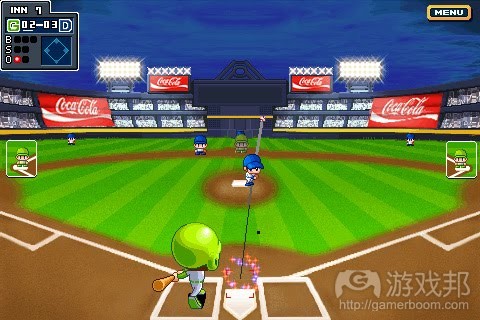
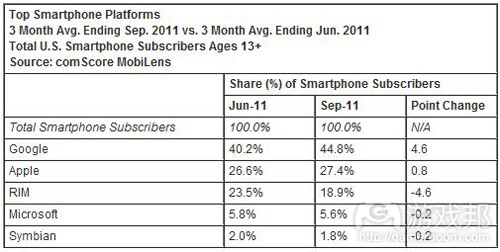
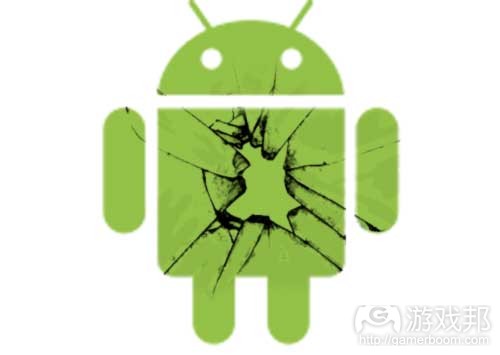
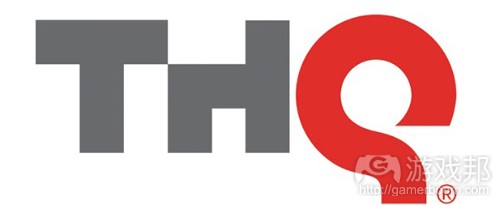
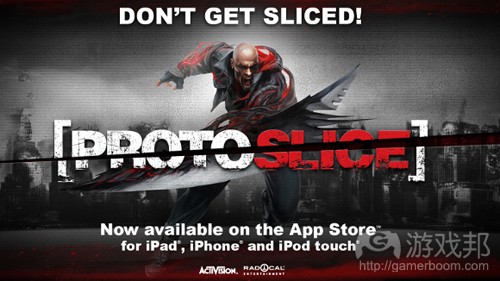

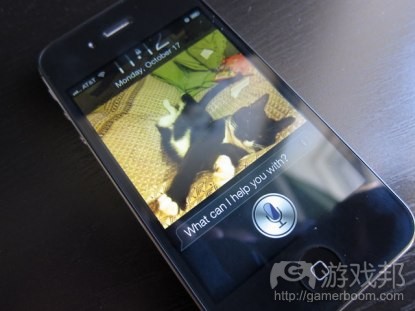














 闽公网安备35020302001549号
闽公网安备35020302001549号